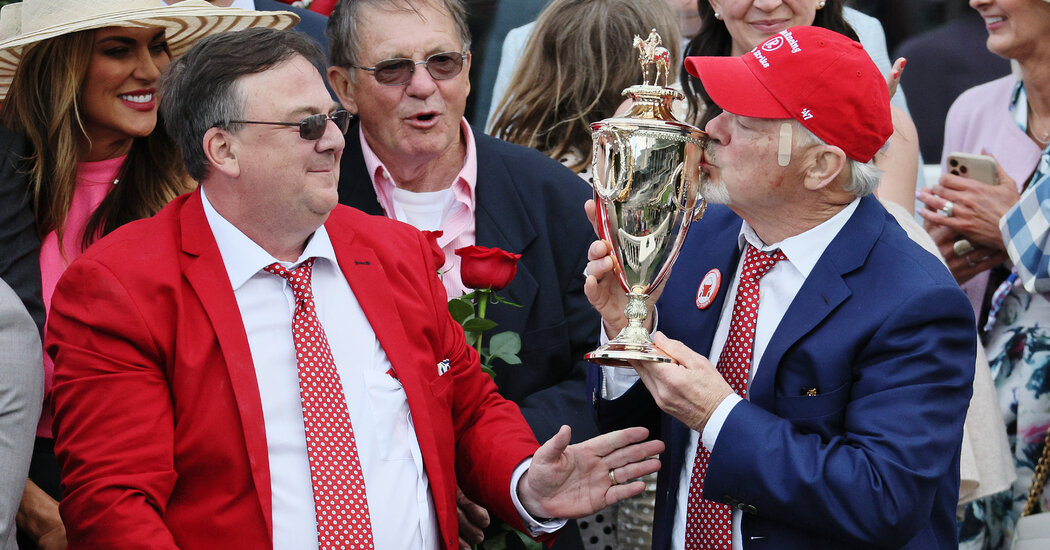
Now the newcomers intend to take Rich Strike to Baltimore for the Preakness Stakes on May 21 to race in the second jewel of the Triple Crown. They, along with the horse’s owner, Rick Dawson, have an opportunity to reboot a sport battered by a disqualified Derby winner in 2021 and by suspended trainers, doping convictions and dead horses.
“We sure need it,” said Reed, 57, referring to the boost Rich Strike has given racing. “And here we are, some little guys who can help the sport. We showed that we can make these things happen with some luck, hard work and doing things the right way.”
Reed has had to stand tall before. He learned his craft from his father, Herbert, a former trainer, who stayed by his son’s side for the entire Derby experience.
“He’s been going to the track with me since he was 6 years old, and that’s no bull,” Herbert Reed said. “He would go every day. And when he was 8, he could put a spider bandage on a horse, and most people don’t even know what it is anymore.”
When Eric Reed told his father he wanted to skip college to train horses, Herbert Reed was happy that he had found something he loved to do.
“My dad gave me two horses and said, ‘You want to be a trainer?’” Eric Reed recalled. “‘Here’s two horses. You’re a trainer.’”
More than 9,000 races and 1,445 victories later, mostly racked up on the backwater tracks of Ohio, West Virginia, Indiana and Kentucky, Reed’s horses have earned more than $24 million in purses. The $1.8 million first-place check for winning the Derby was a windfall, but not enough to give Reed a life of ease. This week, he will saddle horses at Horseshoe Indianapolis, Mountaineer in West Virginia and Belterra.




